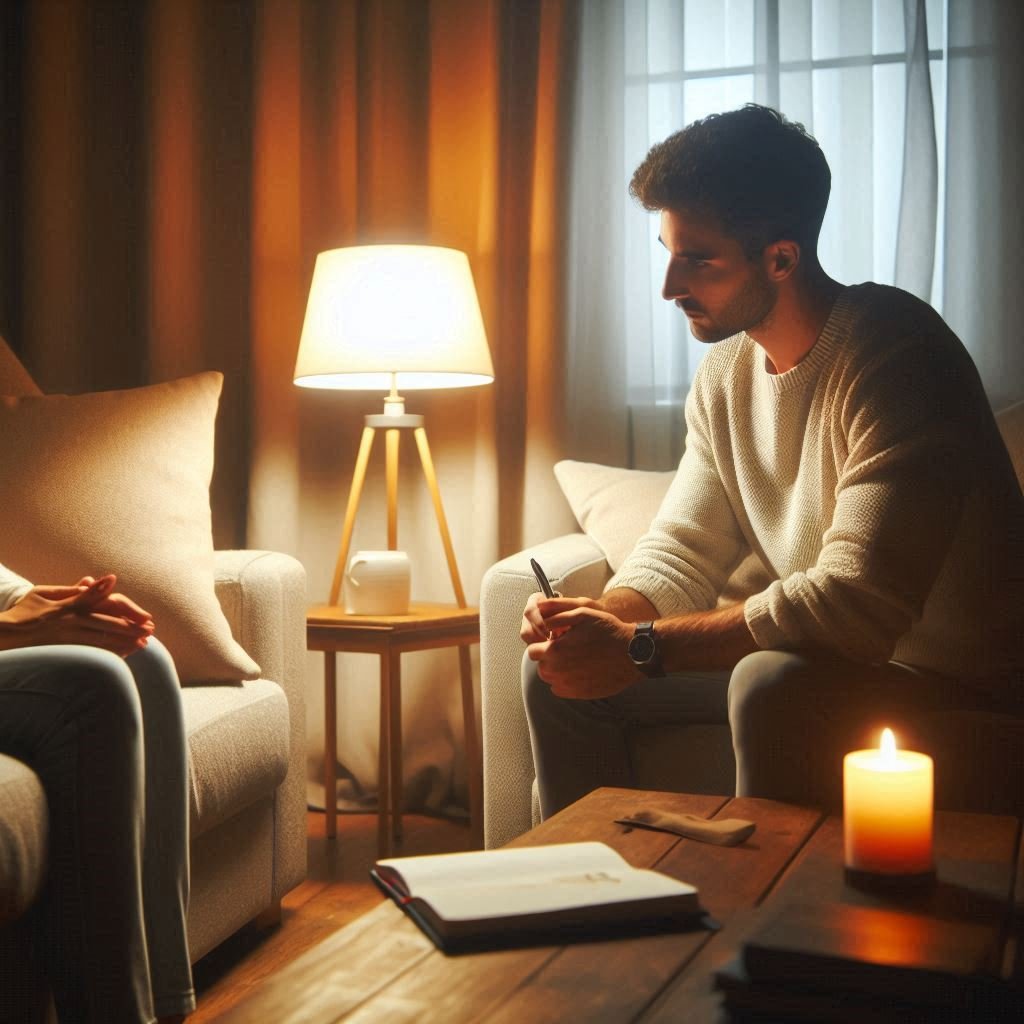Anxiety is defined as body’s response to stress whenever it is subjected to any sort of discomfort like fear, tension or any sort of other environmental factors. It may be overwhelming any may interfere with daily life. Fortunately, there are a few ways to manage and reduce anxiety. These ways are said to be effective for anxiety management. Here are few tips that may help you reduce anxiety.
1. Practice Mindfulness and Meditation

Mindfulness and meditation guarantees significant lowering of anxiety and panic attacks. By breaking the cycle of surrounding yourself with anxious thoughts, Living in the moment lets you focus on the task you’re doing and gradually helps you take control of your life. Here are some tips on how you get started:
- Mindful Breathing: Find yourself a quiet space, sit comfortably with your back straight, close your eyes, take slow, deep breaths, feel the sensation of the breeze entering and leaving your body focusing on your septum. AQs soon as your mind starts wandering, bring your focus back to your breath.
- Body Scan Meditation: Lie down flat, close your eyes and slowly bring attention to every part of your body starting from your toes, moving up to the head. As you notice any kind of tension in any part, consciously relax those discomforted areas.
- Guided Meditation: Use guided apps or services provided online that are specialized in offering guided meditations specifically designed to reduce anxiety.
2. Regular Physical Exercise

Scientifically, exercises have been proven to be a a great natural anxiety reducer as, exercising releases endorphins, which are chemicals in brain that helps in elevating mood and are known to be natural painkillers. Here are some tips that could help you incorporate exercise into your routine:
- Choose Activities You Enjoy: Whether it’s swimming, yoga, walking, sprinting or any physical activity, find a one that you enjoy. This makes it easier to stick to it.
- Set Realistic Goals: Start your journey with small achievable goals. Even a 10 minute walk can make a humongous difference.
- Make It Social: The more you interact with people, the more you feel less anxious. So try working out with friends or consider joining classes.
3. Maintain a Healthy Diet

It is said, ‘You are what you eat’, the more you consume junks and trash, more you risk your physical and mental health. What you eat can have a significant impact on your anxiety level. A healthy balanced diet will help you stabilize your energy levels and moods. Consider the following dietary tips:
- Avoid Caffeine and Alcohol: Both alcohol and caffeine can cause anxiety. Consider consuming just water or herbal teas instead of these.
- Eat Regular Meals: Skipping meals can lead to sudden drop in sugar levels that can trigger anxiety. Try having your meals on time with the abundance of fruits, vegetables, whole grains and lean proteins incorporated in it.
- Incorporate Omega-3 Fatty Acids: Found in fish, certain kinds of meat, flaxseed, omega-3 fatty acids have shown wonders when it comes to improving mental health.
4. Get Enough Sleep

Lack of sleep can trigger anxiety. Sleep and anxiety are closely linked. Lack of sleep causes anxiety and anxiety can make it difficult to sleep. Here are some tips that will help you get enough sleep:
- Establish a Routine: Practice going to bed and waking up at the same time every day. Even during the weekends.
- Create a Relaxing Bedtime ritual: try reading books, taking warm showers or doing light stretches before you go to bed.
- Limit Screen Time Before you Sleep: Try setting your phone to reading mode or night mode as blue lights interfere with your sleep. Avoid Screen Time atleast an hour before you sleep.
5. Seek Professional Help

If non of the above tips seem to work, your anxiety is severe or persistent. Further it would be helpful if you seek for a professional help. After this, Therapists and counsellors can provide you with tools and strategies to manage your anxiety effectively. Here are some options you could consider:
- Cognitive Behavioral Therapy(CBT): CBT is a type of therapy that helps you identify your negative thought patterns and change it later.
- Medications: In some cases medical professionals might have to provide you with medications that help you manage your anxiety.
- Support Groups: Joining a group can help you with a sense of community and understanding as well as this increases your interaction with people hence your mood feels lifted and you feel less anxious.
Conclusion
Anxiety is a type of problem that everyone can face at least once in their lifetime. With right strategies and practices it can be managed effectively. Mental health is just as important as your physical health. So Remember, it’s important to be patient and kind to yourself as you move forward in the journey of your life.
Click here if you’re looking for Unlocking the Secrets of Muscle Gain.








